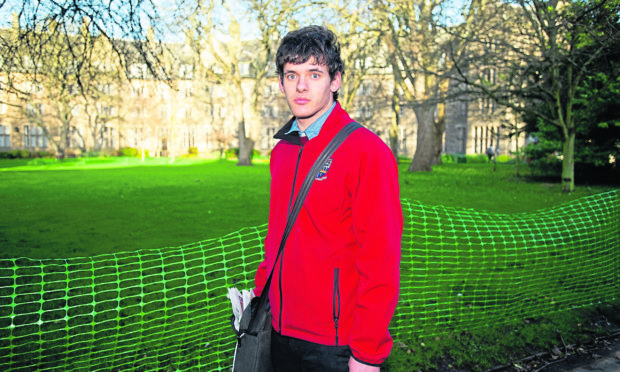St Andrews University will need to find an extra £500,000 to pay for a “massive” hike in the cost of student accommodation, it has claimed.
Fife Council has imposed an 800% increase in the fees it charges the university for ensuring its accommodation complies with regulations surrounding houses of multiple occupation (HMO).
St Andrews bosses are taking legal advice on the matter, which will see its HMO licence fees rise from £54,000 to £510,000 every three years.
The council has said it is bringing its charges into line with other local authorities and has assured students the move will not necessarily mean rent rises.
However, the university has said the money will have to come from somewhere at a time when it is already facing an underlying deficit.
A spokesman said: “What is certain is that it will not now be spent on our core business of providing world-class teaching and research and on enhancing the globally-acclaimed experience of our students who put £34 million a year into the St Andrews economy, supporting 550 jobs in the local community.
“We have had an extremely positive relationship with Fife Council and were surprised they did not engage in any consultation with us prior to imposing this significant rise in fees.”
The spokesman said the university had repeatedly asked for justification from the local authority and claimed the “unprecedented” move had angered both students and the local community.
Despite this, he said the university was ready to work with the council to find a solution.
Jamie Rodney, president of St Andrews Students Association, said he would meet the council’s head of housing, John Mills, on Monday.
He has slammed the increase as “bizarre and irresponsible” and claimed it would make it more difficult for young people to live in the town.
“Mr Mills has been in touch and we will meet him on Monday to discuss the students’ concerns,” he said.
“I hope it will be a productive meeting.”
Mr Mills said the council had updated the charging structure for HMO licences, bringing it into line with other local authorities and ensuring the increased costs of administering the system were not passed on to taxpayers.
“The new charging structure now covers the full cost of the HMO licensing service, including administration, property inspections and verification,” he said.
“We’ve moved from a flat-based fee structure to one that takes account of the number of occupants in an HMO, and the resources spent on each application.
“Concerns have been raised that this will lead to rent rises for students,” he added.
“It’s important to note that any rises in rent are at the discretion of the university and there is nothing to suggest that a rise in the fees the council charges for HMO licences should be passed on to students.”
He urged anyone concerned about potential rent rises to raise it directly with the university.










